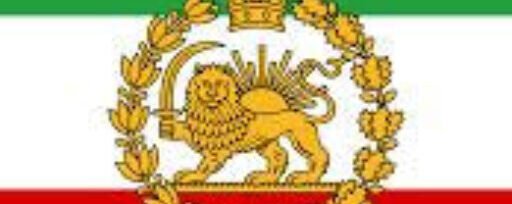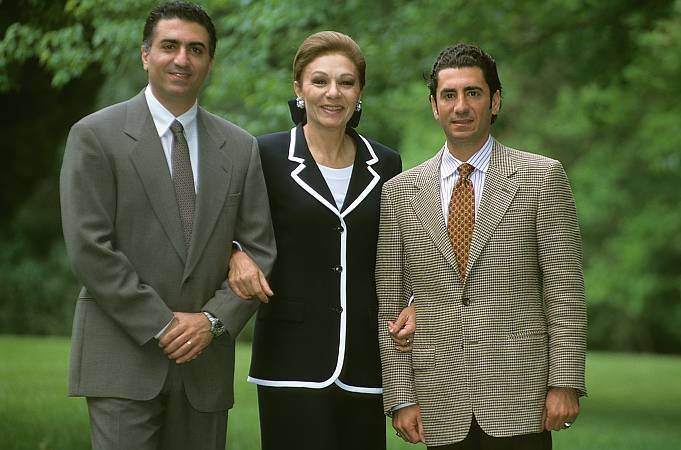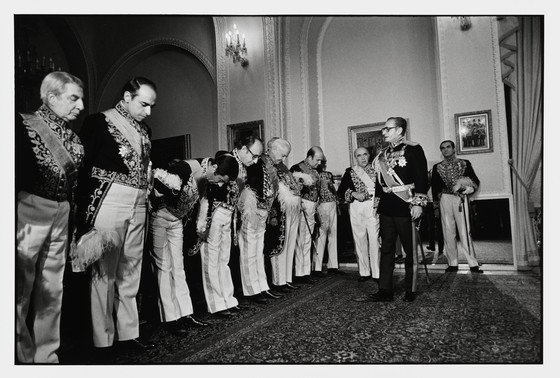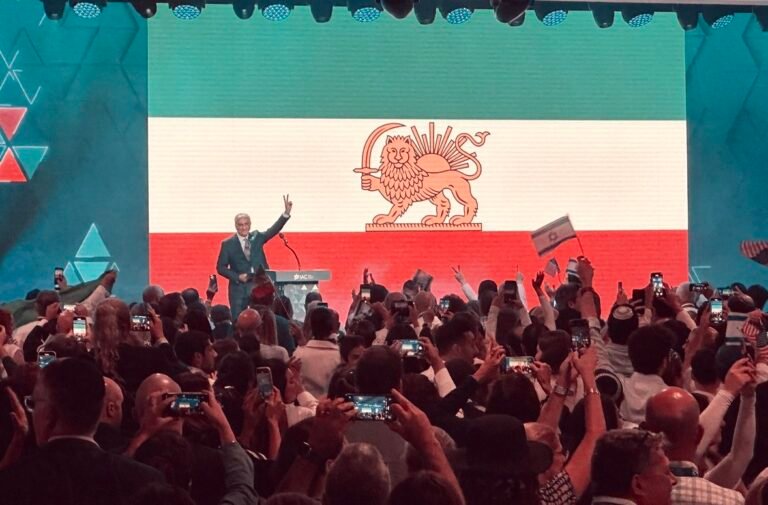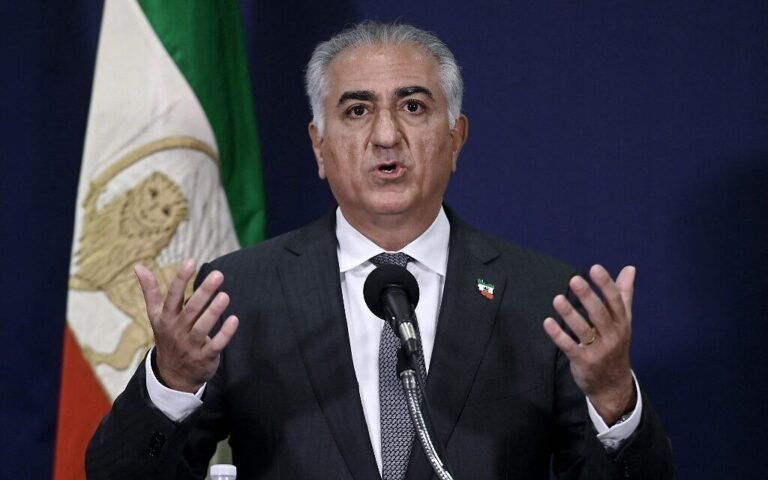Exploring the Story of Ali Reza Pahlavi
Ali Reza Pahlavi was the last Shah of Iran’s son, born on April 28, 1966. His life story is filled with deep challenges and key historical moments. Despite the tough times after the Iranian Revolution, he achieved a lot in education. He studied at well-known places like Princeton, Columbia, and Harvard.
Ali Reza Pahlavi’s life story is very moving. We will look into his education, personal life, and family’s political role. Sadly, he died on January 4, 2011, when he was 44 years old. His story is important to understand his own legacy and the broader story of a Persian prince living away from home.
Introduction to Ali Reza Pahlavi
Ali Reza Pahlavi was born on April 28, 1966. He was an important member of the Pahlavi dynasty. He was the younger son of Mohammad Reza Pahlavi and Farah Diba. His role in the Iranian royal family shaped many of his life experiences and insights.

Before the 1979 Iranian Revolution, Ali Reza was second in line to the throne. This made his life very connected to the big changes happening in Iran then.
Ali Reza Pahlavi’s understanding provides a special look at the events that led to his family’s exile. The end of the Pahlavi rule was during a big rise against the monarchy. This happened through a lot of social and political trouble. Understanding this helps us see Ali Reza’s life and its impact on the Iranian royal family better.
Ali Reza Pahlavi was deeply tied to the hopes and struggles of the Iranian people through his family. The Pahlavi dynasty has a long history with many achievements and some issues. Looking into Ali Reza’s life shows how these factors shaped his opinions and actions at important times in Iran’s history.
Early Life and Family Background
Ali Reza Pahlavi was born on March 1, 1922, in Tehran. His childhood was exceptional, thanks to his family’s royal status. He grew up surrounded by the luxury of the Niavaran Palace and other royal homes.
This setting deeply influenced him from a young age. It set his life apart from many others.
Birth and Childhood in Tehran
Being part of the Pahlavi Imperial Family meant Ali Reza had a special upbringing. He was treated as a royal heir, immersed in Iranian nobility’s traditions. From an early age, he had access to the best education and resources.
These experiences prepared him for his future roles within the family. They highlighted the contrast between his life and ordinary Tehran citizens.
Upbringing in the Pahlavi Imperial Family
Ali Reza’s life was a blend of love and duty from the start. The need to maintain his family’s honor was always present. He was raised to embody the Pahlavi legacy, facing high expectations.
This mix of privilege and responsibility shaped him into who he became. It contributed to his deep respect for his heritage. Yet, it also set the stage for the challenges he would face later.
Education and Academic Pursuits
Ali Reza Pahlavi’s journey through education is a story of growth and exploration. He started his schooling in Iran. Later, his family moved to the United States. This was a big change that affected his studies and life.
Schooling in Iran and the United States
Ali Reza was born in Tehran and began his studies at Lycée Razi and Niavaran Palace School. After leaving Iran in January 1979, he faced new challenges in the U.S. He went to St. David’s School in New York and then Mt. Greylock Regional High School in Massachusetts, graduating in 1981.
Degrees and Specialization in Ancient Iranian Studies
Ali Reza Pahlavi was driven in his higher education. He earned a B.A. in Music/Ethnomusicology from Princeton University. His interests were broad and deep.
He then achieved an M.A. in Ancient Iranian Studies from Columbia University. Ali Reza was working towards a PhD at Harvard University, focusing on Ancient Iranian Studies and Philology, until his passing in 2011. His work shows a strong desire to connect with and honor his Iranian roots.
| Degree | Institution | Field of Study | Status |
|---|---|---|---|
| B.A. | Princeton University | Music/Ethnomusicology | Completed |
| M.A. | Columbia University | Ancient Iranian Studies | Completed |
| PhD | Harvard University | Ancient Iranian Studies/Philology | Near Completion |
Personal Relationships and Engagements
Ali Reza Pahlavi faced the challenges of personal relationships due to his royal background. His efforts to connect despite his status and the public’s eyes are notable. These efforts showcase the complexity of seeking genuine connections while being watched by many.
Engagement to Sarah Tabatabai
In 2001, Ali Reza Pahlavi and Sarah Tabatabai decided to get engaged. This step was crucial for Ali Reza, showing his desire for stability and a partner. However, the engagement did not last. It shows how royal family members struggle with personal relationships because of public pressure.
Relationship with Raha Didevar
Ali Reza Pahlavi was with Raha Didevar from 2007 until his passing in 2011. Their commitment was clear when they got engaged in 2010. This move was Ali Reza’s way of trying to start a family despite life’s hurdles.
In 2011, they had their daughter, Iryana Leila Pahlavi. Her birth added to Ali Reza’s legacy and showed his yearning for a close bond. This happened despite the hardships of being in the royal spotlight.
Life in Exile After the Iranian Revolution
After the 1979 events, Ali Reza Pahlavi’s life changed drastically. The Iranian revolution deeply affected his personal identity and mental health. As a 12-year-old, he had to grasp what it meant to be a Pahlavi in exile.
The Impact of Political Changes on Ali Reza Pahlavi
Being part of the royal family came with big challenges. Forced to live in a new country, Ali Reza dealt with feelings of loss. How people saw the previous regime changed, especially among the middle class. Some started to feel nostalgic about the Shah’s time.
The upheaval took a toll on Ali Reza’s mind. His life in exile was full of personal troubles. These issues showed the loneliness that many immigrants face. The royal family had to navigate public opinion and their own feelings of identity.
For more than 30 years, Ali Reza felt helpless as he saw Iran change from afar. This disconnection weighed on him emotionally. It made finding purpose and community in exile even more difficult.
Struggles with Mental Health
Ali Reza Pahlavi struggled a lot with his mental health after losing his father and sister. These events led him into a deep depression. He felt lost every day, which was made worse by living in exile. This new life made him deal with who he was and where he belonged.
Being away from Iran brought Ali Reza a lot of emotional pain. The challenges of exile made him miss his homeland a lot. Being part of the Pahlavi family also added pressure. Furthermore, depression was common in his family, showing a recurring problem among his relatives. These issues show how complex and difficult Ali Reza’s feelings were.
Understanding Ali Reza Pahlavi’s mental health gives us insight into the Iranian diaspora’s struggles. Many people who had to leave their country face similar issues. In the Iranian community, there aren’t enough support systems. Iran’s increasing suicide rates and the problems its youth face show the urgent need for better mental health care.
Tragic Death of Ali Reza Pahlavi
Ali Reza Pahlavi’s death on January 4, 2011, brought sadness to the Pahlavi family. He was 44 when he died by suicide, a deep loss for his family and many Iranians. His life was shadowed by his family’s hardships, including his father and sister’s deaths, affecting his mental health.
Circumstances Surrounding His Passing
Ali Reza Pahlavi battled long-term depression due to family tragedies. His father passed away in 1980 after being exiled. His sister, Leila, died from a drug overdose at 31. Political unrest in Iran, involving violence and torture, added to his struggles.
Reactions from Family and Friends
Ali Reza Pahlavi’s death deeply affected his family and friends. The Pahlavis sought privacy during their mourning. The Iranian-American community, including groups like the National Iranian American Council, felt great sorrow. Tributes and memorials highlighted his family’s love and the broader impact of his life. Ali Reza’s story remains a poignant part of the Pahlavi family’s history and Iran’s political complexities.
Legacy and Memory of Ali Reza Pahlavi
Ali Reza Pahlavi’s legacy lives on through touching memorial services. These events bring the Iranian diaspora closer, creating a strong sense of community. A notable service on January 23, 2011, highlighted the bond between the Pahlavi family and their followers.
Memorial Services and Commemoration
Memorial services for Ali Reza Pahlavi are heartfelt events. Family, friends, and supporters gather to celebrate his life and legacy. These ceremonies show the deep emotional connection within the Iranian diaspora, crossing borders.
Significance in Iranian History
Ali Reza Pahlavi’s story is deeply woven into Iranian history. His tragic end reflects the struggles of the Iranian royalty, especially the Pahlavi dynasty. His life in exile offers insights into the tough times faced by royals amid political upheaval.
His family’s push for democracy mirrors the wider fight for rights in Iran today. This shows the ongoing need for liberty and human rights in the country.
| Date | Location | Description | Attendance |
|---|---|---|---|
| October 22, 2024 | Richard Nixon Presidential Library and Museum, Yorba Linda, California | Reza Pahlavi received the Richard Nixon Foundation’s Architect of Peace Award | Distinguished guests, friends, and advocates of freedom and peace |
Ali Reza Pahlavi’s Place in the Pahlavi Dynasty
Ali Reza Pahlavi played a special role in the Pahlavi dynasty. He was the last Shah of Iran’s younger son, Mohammad Reza Shah. His life helps us understand the royal family’s complex history, which shaped Iran today. Born during turbulent times, he was pegged for key roles in the monarchy’s succession.
From 1925 to 1979, the dynasty ruled Iran. Initially, Ali Reza was seen as a future leader. The old laws had strict rules about who could become heir. Ali Reza met these criteria. This role came with heavy responsibilities.
Ali Reza’s life reflected the dynasty’s widespread struggles. The political scenario was tough, especially after the 1953 coup that brought his brother back as Shah. These events show the broad impact of royal family members on Iran’s future.
Looking at Ali Reza Pahlavi’s legacy, we see he was more than a royal. He symbolized the hopes and challenges of maintaining a legacy during significant change. The titles and symbols within the Pahlavi family connect them to their past, showcasing the weight of their heritage.
| Title | Name | Relationship | Year Born | Year Died |
|---|---|---|---|---|
| Shah | Mohammad Reza Shah Pahlavi | Brother | 1919 | 1980 |
| Crown Prince | Reza Pahlavi | Brother | 1960 | N/A |
| Princess | Shahnaz Pahlavi | Sister | 1940 | N/A |
| Princess | Farahnaz Pahlavi | Sister | 1944 | N/A |
| Prince | Alireza Pahlavi | Self | 1966 | 2011 |
Contemporary Relevance and Reflection
The Pahlavi family is still important in Iran’s politics, even after being in exile for years. They fight for democracy, talking about Iran’s political future. They reach out to the youth and talk about the need for change in society.
The Pahlavi Family’s Role in Current Iranian Politics
Recently, the Pahlavi family got involved in Iran’s current politics. On February 22, 2021, they held a panel to remember the 1921 coup’s 100th year. This event started the Reza Pahlavi Period. Dr. Robert Steele from UCLA and other experts talked about the Pahlavi family’s history.
This workshop had experts from many fields share their thoughts on the Pahlavi period. They talked about its impact on Iranians’ fight for rights and democracy. It shows how relevant the Pahlavi family is today as they highlight the struggles Iranians have faced.
- Political movements in Iran, including the student protests of 1999 and the 2009 demonstrations, show the people’s desire for change.
- Recent protests in 2019 illustrated the commitment of youth challenging oppressive laws and advocating for freedom.
- Engagement in global discussions on Iran’s political future emphasizes the necessity for a peaceful transition to a secular democracy.
The Pahlavi family encourages activism in Iran, aiming to highlight human rights issues. Their dedication to democracy means their influence on Iran’s politics will last.
![Ali Reza Pahlavi (Pahlavi Imperial Family Member) ~ Bio with [ Photos | Videos ]](https://i.pinimg.com/736x/0d/ac/47/0dac476ef6155eca63c463de0a6d3a26.jpg)
Conclusion
The life of Ali Reza Pahlavi reminds us deeply of the Ali Reza Pahlavi legacy in Iranian history. Reflecting on his journey shows the importance of mental health awareness. His struggles highlight the need for better understanding and support.
Ali Reza’s legacy also makes us think about the Pahlavi family’s role in Iran. Their story, filled with success and sorrow, mixes with Iran’s moves towards modernization. These stories show us how past events affect Iran’s views and politics today.
Looking at Ali Reza Pahlavi’s life shows the depth of royal legacies and the human stories behind politics. It teaches us about individual struggles and historical impacts. This helps us think more about how family legacies last and why supporting mental health matters.
FAQ
Who was Ali Reza Pahlavi?
Ali Reza Pahlavi was Mohammad Reza Pahlavi’s younger son, the last Shah’s child, you could say. He faced tough times after the Iranian Revolution, which sent his family away from Iran. His life in the royal family and challenges after they left Iran are significant.
What was Ali Reza Pahlavi’s background?
He was born on April 28, 1966, in Tehran. His youth was filled with privilege, attending elite schools like Niavaran Palace primary school. Things turned upside down for him after the 1979 revolution in Iran.
Where did Ali Reza Pahlavi study?
Ali Reza went to top universities. He got a BA from Princeton and an MA from Columbia University. He was working on a PhD at Harvard, studying ancient Iran, when he died.
Did Ali Reza Pahlavi have any notable personal relationships?
Yes, he was engaged to Sarah Tabatabai in 2001, but they never married. Later, he was with Raha Didevar, and they had a daughter, Iryana Leila, in 2011.
How did the Iranian Revolution affect Ali Reza Pahlavi?
The Iranian Revolution turned his world upside down, forcing his family into exile. This had a deep impact on Ali Reza. He struggled to find his way in the U.S., all while dealing with the history that had driven them away.
What mental health struggles did Ali Reza Pahlavi experience?
Ali Reza faced a tough battle with depression. This was especially hard after his father and sister’s deaths. The trauma of leaving his homeland and carrying his family’s burdens made things worse.
What were the circumstances surrounding Ali Reza Pahlavi’s death?
Sadly, he took his own life on January 4, 2011, in Boston. His long fight with depression and feeling of loss played a big role in this tragedy.
How is Ali Reza Pahlavi remembered today?
People remember him through memorials. These events show his impact on the Iranian community and the fight for mental health awareness, especially concerning royal families.
What is Ali Reza Pahlavi’s place within the Pahlavi dynasty?
As the last Shah’s younger son, his story is unique. It mirrors the hopes and struggles of his family through difficult historical times.
How does the Pahlavi family remain relevant in contemporary Iranian politics?
The Pahlavi family, including Ali Reza’s brother, Reza, still fights for democracy. They are involved in Iran’s political discussions, keeping their family legacy alive.
